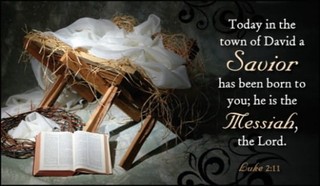
- Recent Translations
- All Translations
Luke 2:42
Share
Settings
Luke 2:42 Meaning and Commentary
And when he was twelve years old
Not that he was now, (hwum rb) , "a son of the commandment", F18 to use the Jewish phrase; or now came under the yoke of the law; or was obliged to the duties of adult church membership, as is asserted by some; nor particularly to go to Jerusalem to make his appearance at the feast of the passover, or any other feast: for according to the maxims of the Jews, persons were not obliged to the duties of the law, or subject to the penalties of it in case of non-performance, until they were, a female, at the age of twelve years, and one day, and a male, at the age of thirteen years, and one day; but then they used to train up their children, and inure them to religious exercises before: as for instance, though they were not obliged to fast on the day of atonement, until they were at the age before mentioned; yet, they used them to it two or three year's before, as they were able to endure it: a son of nine, or ten years old, they train him up by hours; they make him fast so many hours; and one of eleven, or "twelve years old", they make him fast a whole day: but then this was not law, but custom; and which they observed, that they might be used to the commandments F19, and be expert in them, and ready to perform them when required. It is said, F20 that
``there was a good custom in Jerusalem to make their little sons and daughters fast on a fast day; the son of a year, till the very day he is "twelve years old", when he fasts the whole day; and after that they carry him, and bring him before every ancient man, that he may bless him, and confirm him, and pray over him, that he may be worthy in the law, and in good works; and: every one that is greater than he in the city, he stands up from his place, and goes before him, and bows to him, to pray for him: and this is to learn him, that they are beautiful, and their works beautiful and acceptable to God; and they did not use to leave their little children behind them, but brought them to the synagogues, (twumb Mzrzl ydk) , "that they might be ready in the commandments".''That they might be inured to them, and expert in them, when they were under obligation to them; for they were not properly under the law, until they were arrived to the age above mentioned; nor were they reckoned adult church members till then, nor then neither, unless worthy persons: for so it is said F21,
``he that is worthy, at thirteen years of age, is called (ykl Nb) , "a son of the congregation of Israel";''that is, a member of the church. When therefore Joseph and Mary took Jesus along with them, at this age,
when they went up to Jerusalem, after the custom of the feast
of the passover, it shows their religious regard to him; and may be an instruction to parents, to bring up their children in the nurture and admonition of the Lord, after their example.
F18 Aben Ezra in Gen. xvii. 14.
F19 Misn. Yoma, c. 8. sect. 4. & Maimon. & Bartenora in ib. T. Bab. Yoma, fol. 82. 1. Maimon. Hilch. Shebitat Asur, c. 2. sect. 10, 11.
F20 Massechet Sopherim, c. 18. sect. 5.
F21 Zohar in Exod. fol. 39. 4.

